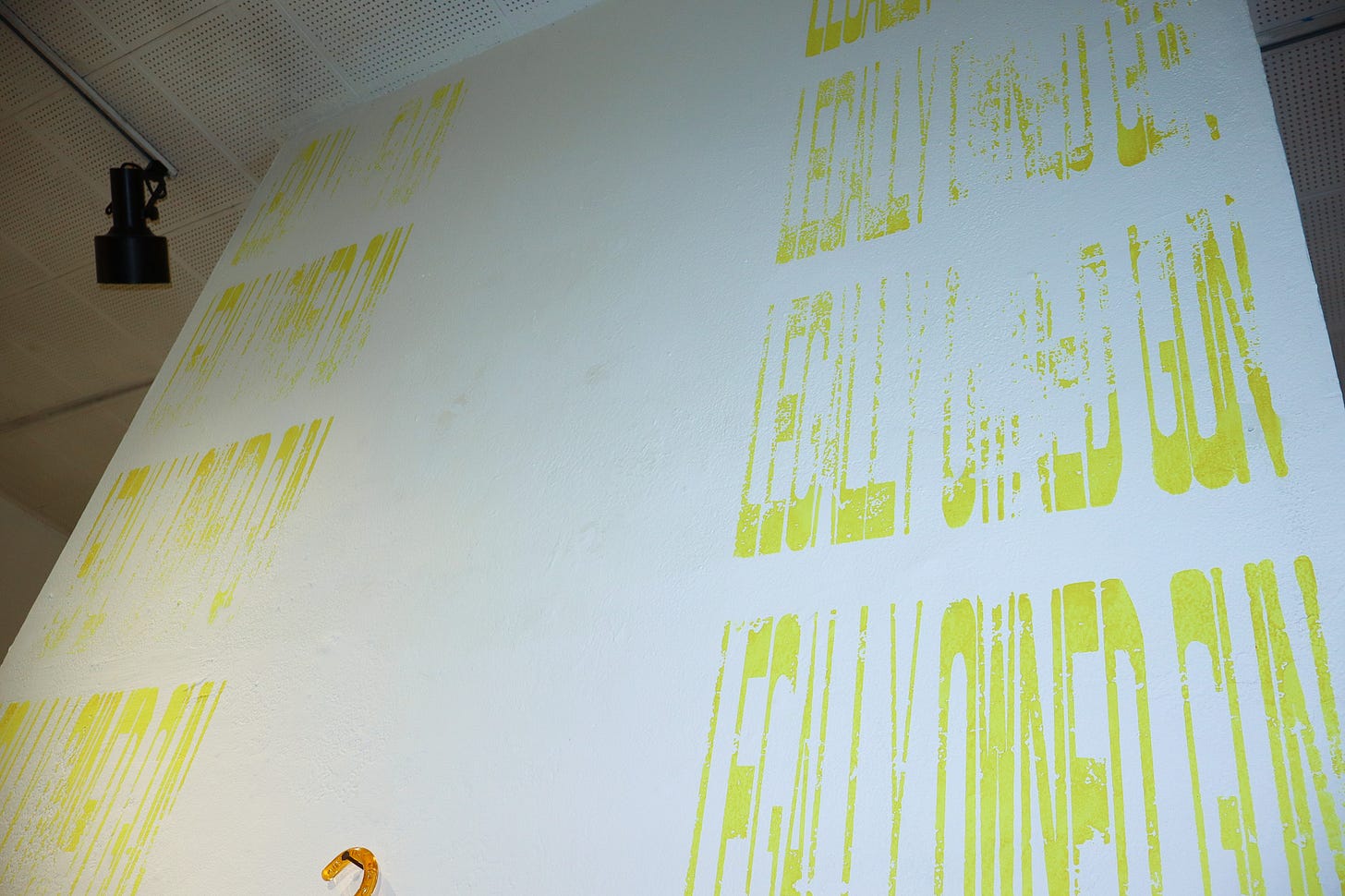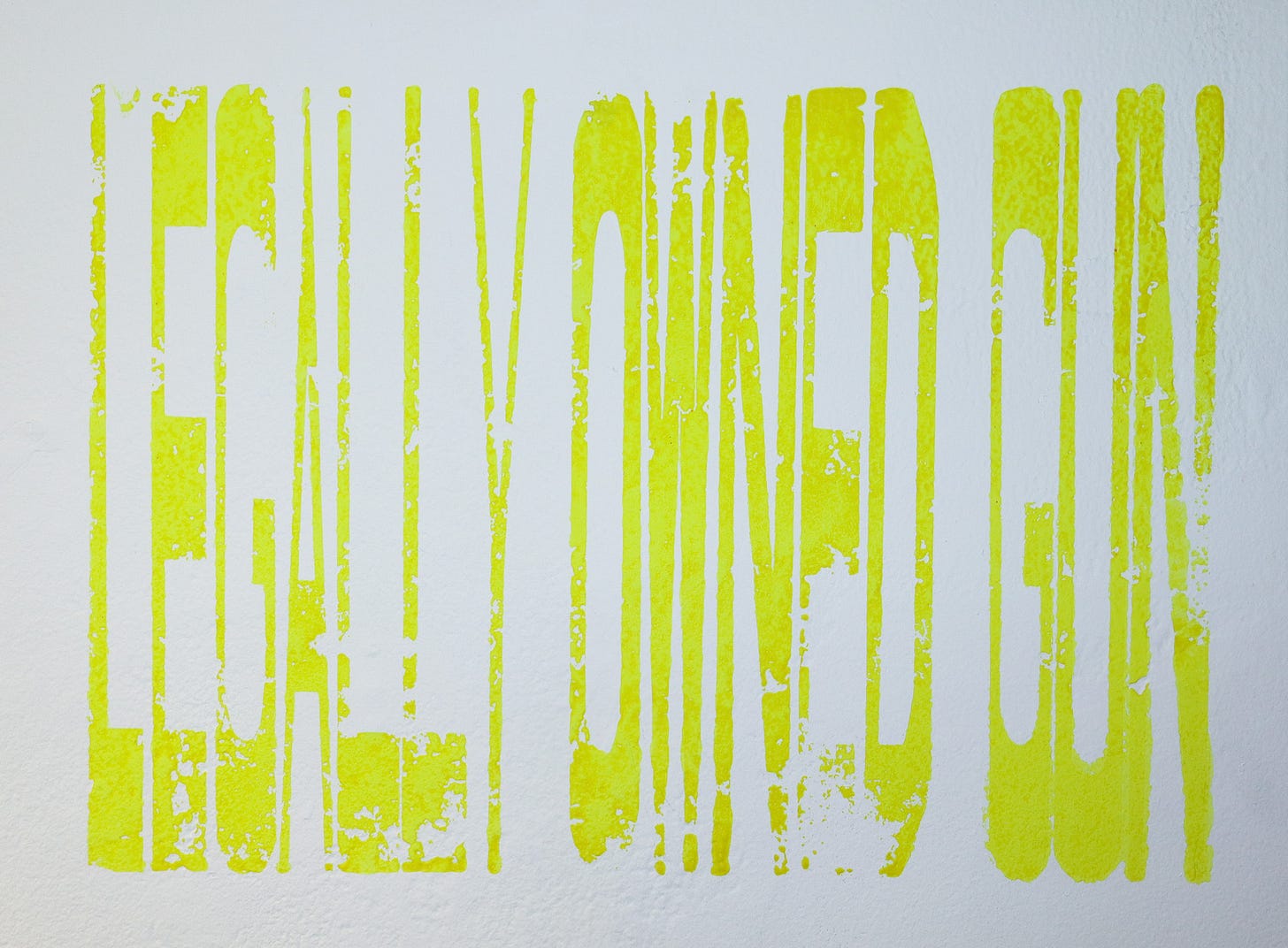My Boyfriend's Out of Town - ONE MUST IMAGINE BILLIONAIRES SKIING
Artist interview with founder of My Boyfriend's Out of Town, a feminist collective, Iulia Filipov-Serediuc
Bailey Anderson: Hi, everybody. Today I'm here with Iulia Octavia Filipov-Serediuc and we're looking at her piece here in VESSEL, which is a collaborative work through the collective that she's formed called My Boyfriend's Out of Town. So, Iulia, what is My Boyfriend's Out of Town?
Iulia Filipov-Serediuc: My Boyfriend's Out of Town is a feminist collective centered around uplifting voices that critique patriarchal structures. This is usually done through fabrication and collaboration.
BA: How would you define community?
IFS: I think community is the lifeblood of everything. I don't think you could do anything alone. The community is the people who support you, and who want you to succeed. Or they're the people that help you, the ones that support you. I don't think anything could be done without community.
BA: What does creating art and collaboration mean to you?
IFS: That same idea. It's everything that needs to be done with the help of other people, that notion of two heads are better than one. Combining different skills and different ideas makes work stronger and more developed. I think there's also the point that there are so many things that have been gate-kept from women, especially. It's much harder to embark on a journey of doing something that's been traditionally gate-kept from you, all by yourself. Community and collaboration, that sense of helping people get involved with things that otherwise they weren't able to by themselves.
BA: So with that being said, how is collaboration feminist?
IFS: I think collaboration is innately feminist. I think we, as women, have been socialized in caring for everyone at the expense of ourselves. But also simultaneously that all of our work is very noble and it exists in solitude. We are actually ‘lesser than’ if we need any kind of help. I think that's what allowed us to be so historically gate-kept from things, historically un-included from things.
Things were not taught to us and not shown to us because of that reasoning. So collaborating as a feminist practice, is flipping that narrative and turning it into something that we can get back into doing or get into doing for the first time.
BA: So it sounds like collaboration is more an act of defiance in the face of systems that would prefer us to be alone and separated.
IFS: Absolutely. Absolutely.
BA: How has working with others in collaborative settings, how does that influence your own work?
IFS: I used to be very dedicated to making something perfect to the extent that I wouldn’t make it at all. You get kind of stuck up, on the way there. Helping and doing things collaboratively. It helps with the problem-solving that I’d get stuck on in personal work or it is just more fun. it's what art's all about. I honestly argue that getting. To approach art in different ways that I wouldn't have even thought about. And I know I have been doing this for several years. But there’s always working with someone new or working with someone else has always been: Oh, I didn’t think you could do that. It opens up this idea that art can be done in so many different ways and making work can be done in so many different ways rather than hermit holing up on a hill and you’re doing it all by yourself. It's changed my practice completely. I work more in collaboration now than I do independently.
BA: How does helping others change the way that you view your community? How has it set up ways for you to experience other people and other artists?
IFS: I think the fact that I get to help people do the projects that they've always wanted to or do the projects that seem impossible has opened me up to so many different ways of making work, but also so many different people and their experiences. And I think being almost the, the vehicle to getting someone to their finalized idea has been so important to creating friendships, creating networks, destabilizing certain notions that I might have had. Being able to not gatekeep my own skills and my own knowledge.
I think that that's been really the big part - a big part of working with people and working within my community. I want my community to make work that makes them happy and make work that's developed and it's good. If I'm able to help with that by helping them make it or helping them develop it, that's, that's been great because it's it we as a community are much stronger as a whole rather than individual parts.
BA: Can you speak a little bit more about how asking for help has developed the way that you build relationships interpersonally or the way that you approach making work?
IFS: I think initially asking for help is very scary and it's very it makes you feel very vulnerable. But I think it opens up your world to so many ways of becoming more confident in your work and more supported. Working within subject matter or materials that are unfamiliar and maybe a little scary, I think getting the help from others who care about you or care about the work that you're making, I think gets you past the point of being stuck in this limbo of not wanting to do something.
I feel like I wasn't being as radical and as cutting edge when I was working alone. And now that I work collaboratively, I don't feel as scared. I think there's power in numbers. That's one of the things I think a lot about when it comes to collaboration, where I really can do some crazy stuff and I'm supported by my community, I'm supported by the people that I'm collaborating with.
BA: It's always nice to see, when you meet someone, you get to know them more. They're actually as radical as you. It's exciting.
IFS: Oh, yeah. Sometimes they're even more radical than you, and you're like, whoa, I gotta step my game up, this is awesome. Yeah. I think learning from people and learning from new things, from people, learning how people think and how people are and how they correspond with the art. Everything that they do is interesting.
BA: So cool. Well, thank you so much, Iulia. Thank you for being a part of VESSEL. Her two works in the show were, ONE MUST IMAGINE BILLIONAIRES SKIING and LEGALLY OWNED GUN So feel free to check her out online. Thank you so much for being a part of VESSEL.
IFS: Yeah, thank you so much for having me. I appreciate it.
My Boyfriend’s Out of Town is a woman and queer-operated feminist collective and fabrication studio invested in uplifting voices that critique patriarchal structures.
Iulia Filipov-Serediuc is working between foundry, moss, painting, illustration, and the discarded, Filipov-Serediuc investigates the boundaries of form and time. Filipov-Serediuc enjoys building within her community, most proudly as a co-founder of the Desert Biennial Project and My Boyfriend’s Out of Town. Her work has been shown in Nevada, California, New Mexico, Arizona, and New York.
Filipov-Serediuc graduated with her BFA in studio art and is currently pursuing an MFA from the University of Las Vegas, Nevada.






